Cannabis N.B. expanding with new stores and private partners
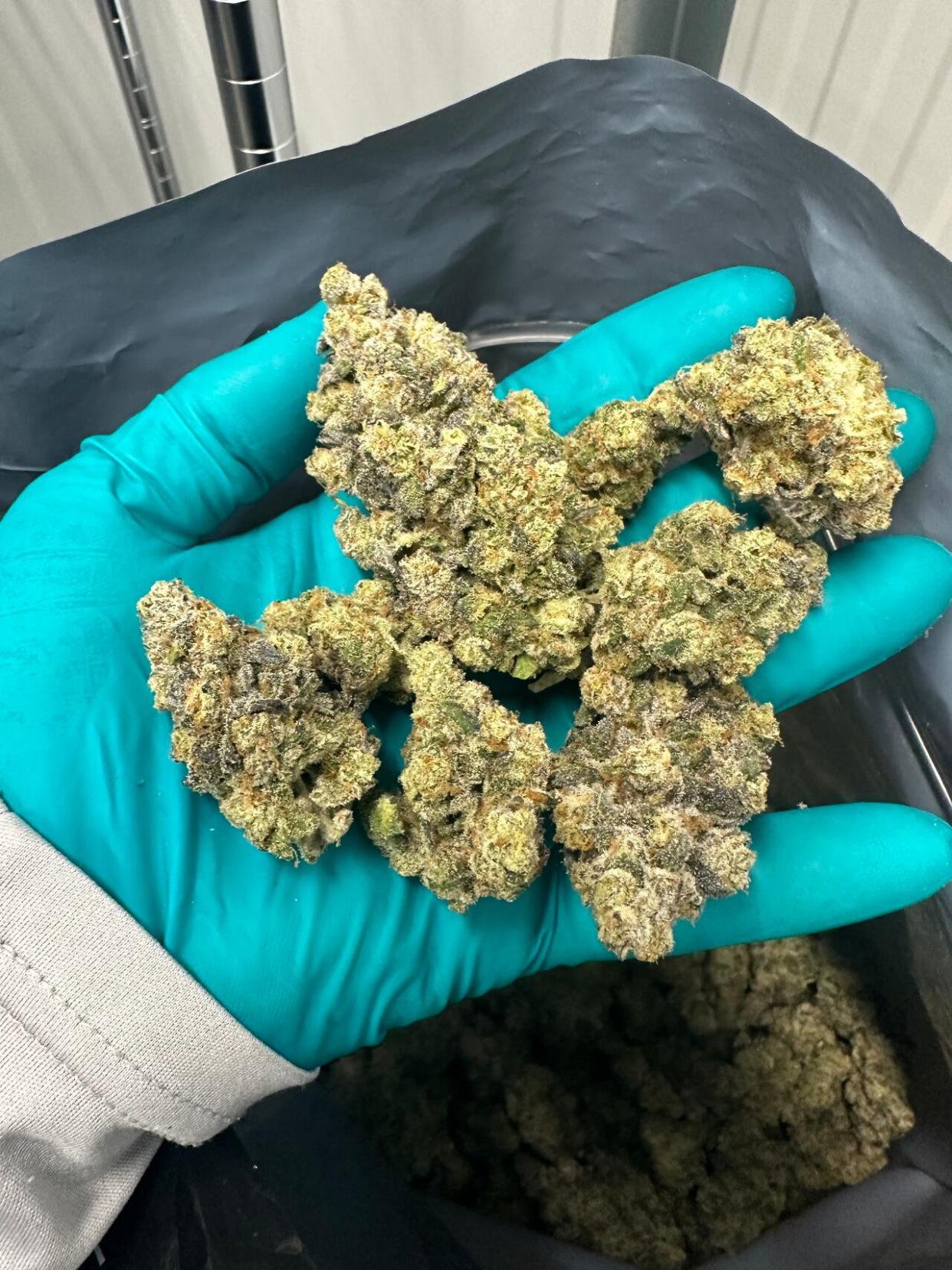
After five years of legalized sales, Cannabis N.B. continues to evolve.
"We're very excited to continue to see expansion and really excited about these new stores opening up in the coming weeks," said CEO Lori Stickles.
Three new corporate stores will open — on Queen Street in Fredericton, Germain Street in Saint John and Mountain Road in Moncton — and a new private store will open in Saint Andrews.
While the first generation of corporate stores have been large boutiques with staff behind counters, the new locations will be smaller.
The one in Saint John is about 800 square feet, she said.
"We're learning a lot as we grow.
"We can continue to deliver all the things that we're known for — which is the experience and bringing the portfolio that our customers want — but doing it in a much more cost-effective way."
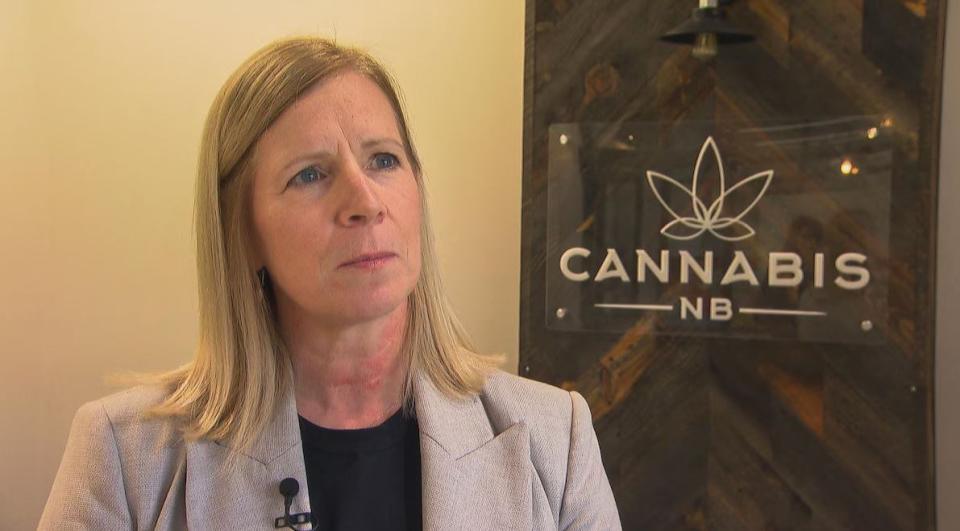
Lori Stickles, CEO of Cannabis N.B., said service to rural areas in the province is improving and so is combatting the illicit cannabis market. (Gilles Landry/Radio-Canada)
The opening of the Saint Andrews store will mark the ninth private retail affiliate, said Stickles, in addition to six farm-gate locations — where local producers also have storefronts.
These are serving to fill in some of the more rural areas of the province and "really helping combat the illicit market," she said.
"We really want to be in the places where illegal stores are today," said Stickles.
"As long as there's illegal stores, there's a market for legal."
Another way the Crown corporation aims to reach more customers in the future is through on-site consumption opportunities.
That could take many forms, said Stickles.
Some farm-gate partners are interested in hosting events, such as concerts and food pairings, she said.
Cannabis N.B. would like to be able to offer samples in-store, as is done in N.B. Liquor stores.
"We have a lot of gummies and things that people may be able to sample responsibly."
There could even be cannabis smoking areas at special events such as concerts, she suggested.
Farm-gate producers envision new part of market
Eco Canadian Organic Inc. in Rexton is one of the farm-gate producers and sellers interested in on-site consumption.
They envision a European-style cannabis café that also offers small, simple food items.
Customers could relax, engage with staff, socialize, consume safe product and share the experience with others, said company official Kevin Clark.
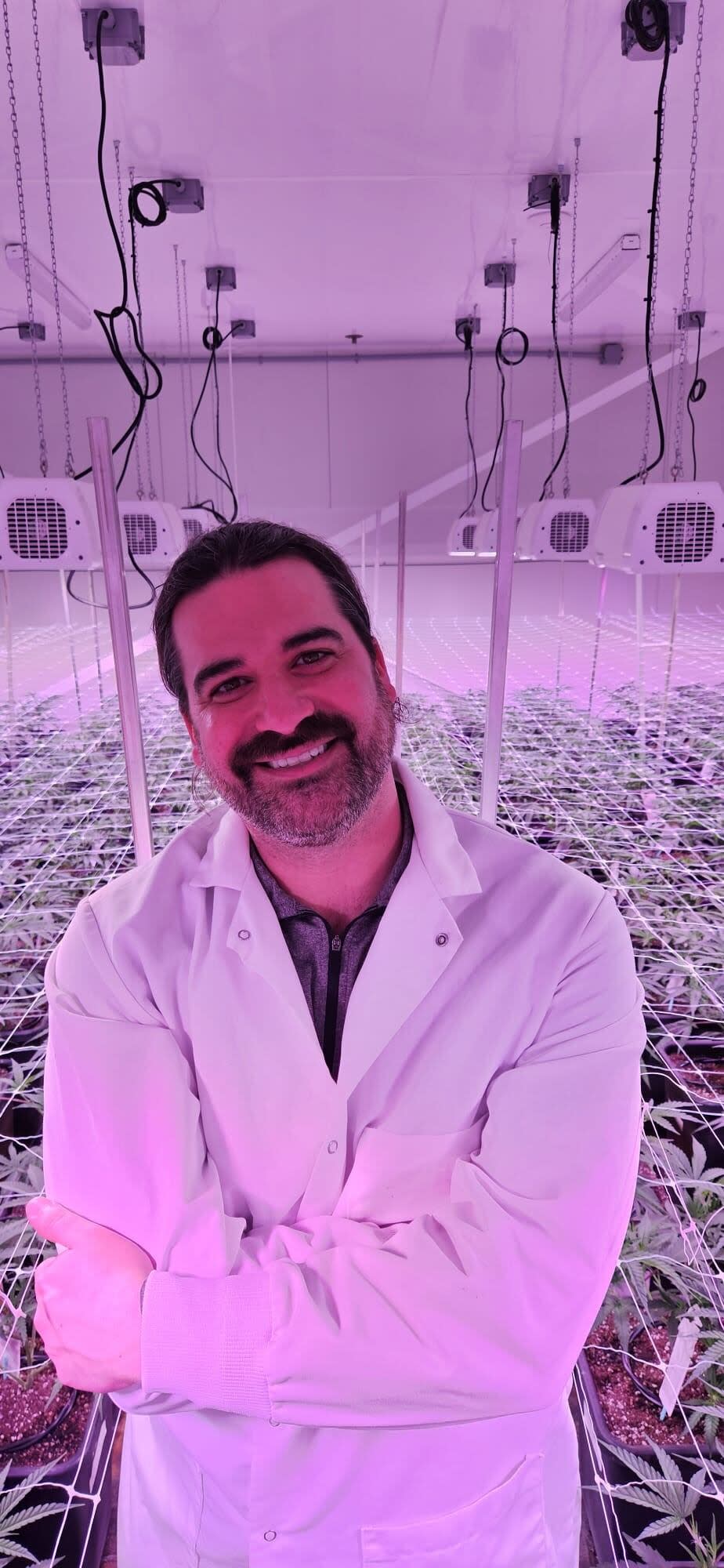
Kevin Clark works for Eco Canadian Organic Inc. in Rexton. He sees tourism potential in new areas of the market. (Submitted by Kevin Clark)
He sees tourism potential, too.
Eco Canadian Organic has a detached farmhouse with a porch that is handy to trails used by cyclists in summer and snowmobilers in winter.
Legislation would be required before that dream could be realized. He expects it will take at least a couple of years to come to fruition.
Standards need to be worked out for things such as ventilation, sanitation, security and managing the risks of over-consumption, he said.
"We're being told stay tuned."
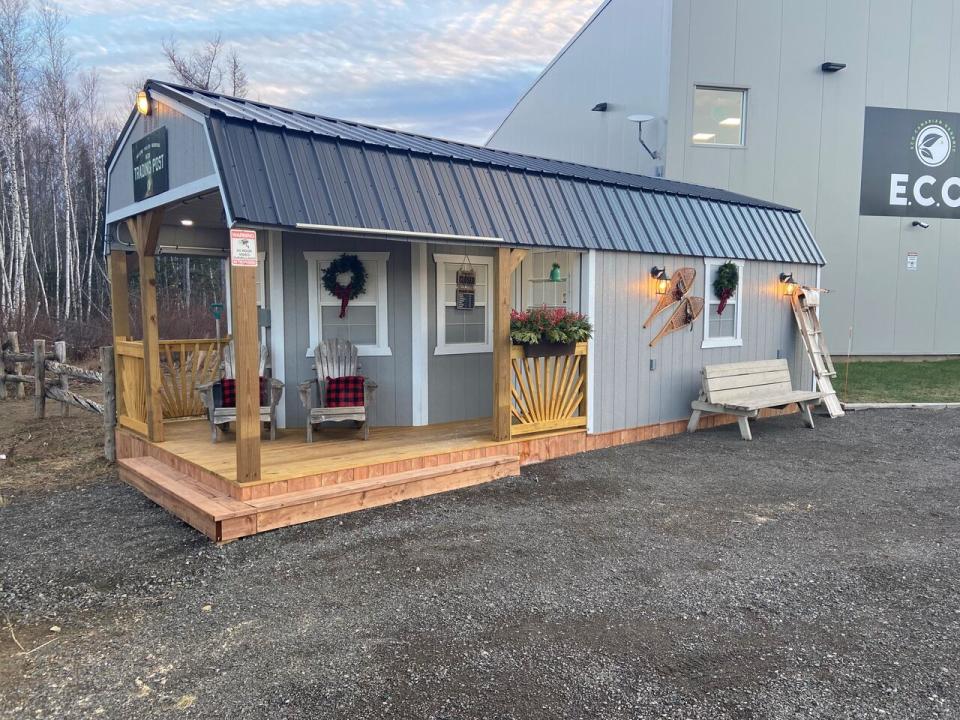
The detached farmhouse at Eco Canadian Organic caters to cyclists in the summer and snowmobilers in the winter. (Submitted by Kevin Clark)
When it comes to capturing more of the illegal market, Clark doesn't use that term. He prefers "unregulated."
One thing that has helped Eco Canadian compete with First Nation dispensaries, he said, is "honouring First Nation tax exemptions."
But he would like to see a crack-down on illicit products, which come from anywhere other than First Nation reserves.
New model attracts new customers
Fellow New Brunswick cannabis micro-producer and farm-gate store operator Jonathan Wilson, of Crystal Cure in Shediac Cape, said the farm-gate model itself is attracting new clientele.
"Our customers tell us they do not shop at Cannabis N.B., and they have never been in a legal store until we opened up."
Many people like to buy from the source, he said, or from small, independent businesses.
Some also seem to prefer a quieter, lower profile location over a busier one on a main thoroughfare.
The single thing that Wilson believes would help legal cannabis be more competitive is lowering the federal excise tax.
Producers are paying $1 a gram, he said.
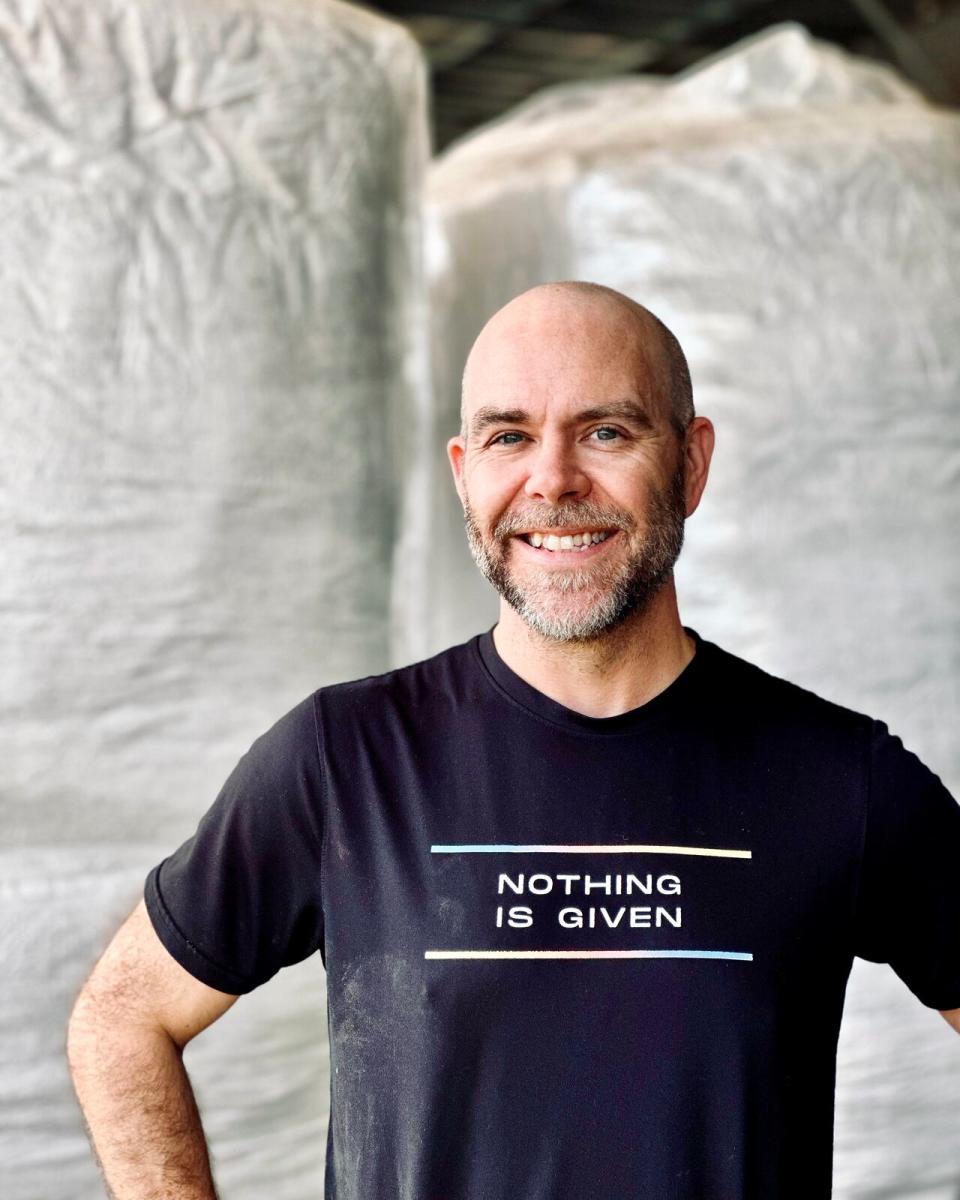
Jonathan Wilson of Crystal Cure in Shediac Cape said businesses like his are attracting new clientele who have never set foot in Cannabis N.B. storefronts. (Submitted by Jonathan Wilson)
That regime was based on an assumption that they'd be selling for $10 a gram, said Wilson.
A 10 per cent rate would be reasonable, he said. But in reality, average wholesale prices have been $2 to $3 a gram, he said.
"It's put a huge damper on the business."
Everyone in the industry is waiting to see if the federal finance minister will act on a finance committee recommendation to change it to 10 per cent, said Wilson.
It's a sticky issue because the provinces get 75 per cent of the revenue, he said.
Stickles said she feels Cannabis N.B.'s prices are competitive considering the quality of its products.
She cited a study done in 2018 by the Research and Productivity Council, which she said found illegal products were more likely to have chemicals or contaminants in them and less likely to contain the quantity of THC indicated on their labels.
Illegal products are also more likely to have packaging that's marketed to youth, she said.
Legal packaging is a lot more colourful and creative than it was in the earliest days of legalization, said Stickles, but regulations are still fairly strict.
"It does really limit producers' ability to create brand loyalty to create excitement around some of their products."
She'd like to see a bit more flexibility in marketing and promotion to compete with things like giveaways and prizes in the unregulated market.
Higher THC limits for edibles would also help, she said.
There's been a lot of conversation about regulatory changes, said Stickles, but "it's slow, very slow moving at this point."


